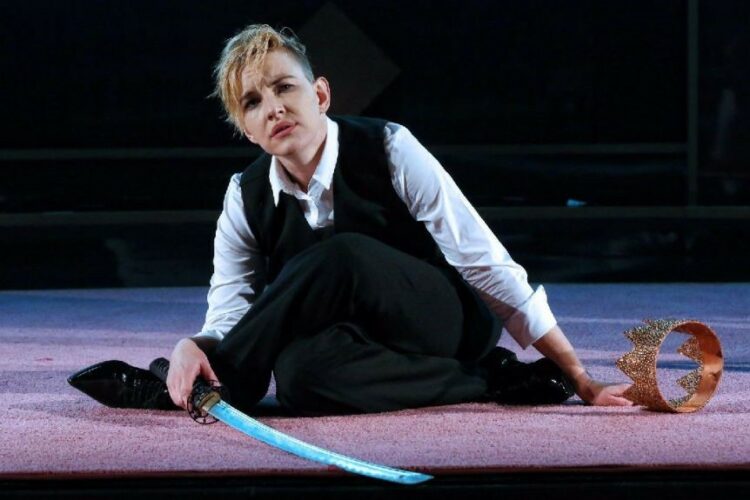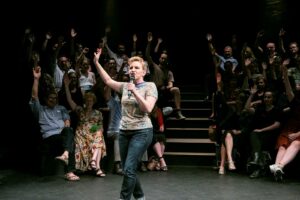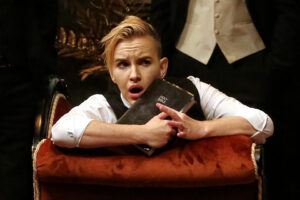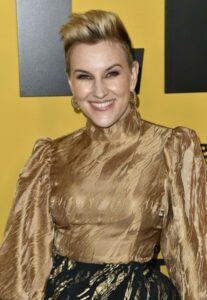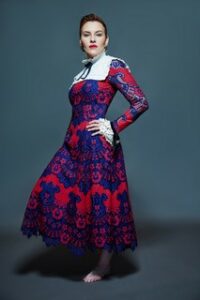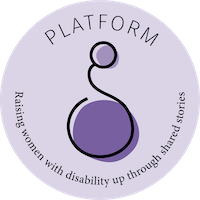As someone who sustained a disability at a young age, I struggled in the early years to feel confident in who I was and how I looked. It felt like I never saw anyone who looked or lived like me represented in any form of mainstream media or arts.
How refreshing it is today to see many people with disability creating a space for themselves and being visible publicly without apology for who they are and how they present in so many public domains. One person who also grew up with disability in a small town like me, (in fact in the very same town as I grew up in!) and who has created a space and a name for herself in the public domain and the arts is Kate Mulvany.
I am reminded again of the importance of being able to see ourselves, in all our diversity, reflected back to us as we navigate our place in the world , and how powerful representation can be in finding your own voice, embracing all that we are and taking power from claiming that which makes us different, as I share Kate’s story with you.
Tell us about yourself
I am Kate Mulvany. I live in Sydney. I am various ages, depending on which website you believe!
What has been your journey of disability?
I was born with renal cancer which was likely caused by my father’s exposure to Agent Orange/dioxin in the Vietnam War. A large tumour was discovered on my left kidney when I was nearly 3. I had a “radical nephrectomy” to remove the tumour, as well as my kidney, adrenal gland, ureter and several ribs. The levels of radiotherapy I had were extreme – that kind of therapy was relatively new back then – which resulted in all of my lower left-hand back muscle and vertebrae becoming atrophied. They haven’t grown since I had the therapy – I’m frozen in time! Over the years, this atrophy has resulted in severe scoliosis and early-onset osteoporosis which means my bones break very easily. Because of the lack of back muscle on my left side, the right side of my back has overgrown, which creates constant, intense pressure on my spinal cord. As a result, I have lived with chronic pain since I was about 10 years of age.
Do you feel that growing up in a country town made a difference in the experiences you had as a young person with disability?
In a way. Now I think back on that time, I realise that Geraldton was actually a kind of escape from my illness, but also didn’t allow me to fully accept my disability. All my “cancer stuff” happened in Perth, five hours away. We’d drive down there every few months for radiotherapy, chemotherapy, check-ups… We didn’t use the word “disability” because we simply didn’t know we could. My doctors and medical records instead used the words “deformity”, “abnormality”, “dysfunctional”, “atypical”…
I never used the word “disability” about myself until I was in my thirties. It took a disabled friend to enlighten me! When I realised I could let go of those words like “abnormal” and embrace the far more empowering word “disabled”, I felt like a weight had been lifted. I wish I could go back in time and tell myself and my family to embrace that word instead of the others I was called.
I never used the word “disability” about myself until I was in my thirties.
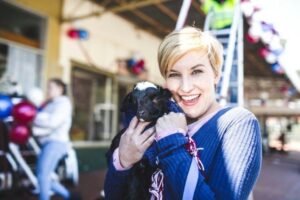
Did you experience anything in particular in growing up in the country that made an impact on how you felt about yourself?
When I was bald from my chemo – that was a hard time. That was something we couldn’t really escape. It was too hot and windy for beanies and we were too poor for wigs, so I mostly got around in a cheap plastic Ace Frehley (Kiss) mask that had hair around the edges! Made for quite a sight! I got bullied a lot about my baldness by other kids, and so did my Mum. Once she got bailed up by a man outside the local grocery store who admonished her for “joining a cult”. He thought she’d shaved my head as part of some bizarre religious practice. As I got older, it got harder in terms of becoming self-conscious, and I became intensely fearful of being bullied again. My back was becoming more and more curved with puberty, and my first flares of intense chronic pain began. The girls at school all got around in bikinis and tank tops. I wanted to join them so much, but my body simply wasn’t anything like theirs. I was crooked and broken and covered in scars, so I covered up a lot. And that made them bully me more!
Seeing my parents suffer as a result of my cancer was also tough. Because my cancer was inherited from my father, there was a lot of guilt and self-blame that took its toll on the family, and I couldn’t help but feel responsible. I blamed myself for my family’s sadness, and at that time in Geraldton there was nowhere for any of us to go to get help for the psychological toll of my illness.
But they’re the negatives!
The main positive of growing up in the country was that there was an amazing sporting community in our town. This community came from every corner of the world. Every size, shape, colour, culture was on our soccer team – from First Nations people to newly-arrived refugees. They had escaped conflict, they had fought in wars, they had survived so much, they had so much wisdom to share. And they took a little bald girl in the throes of cancer and her weary family in their arms and made us strong again – with food, laughter, friendship and soccer! To this day, I swear that my cure was not just medical, but also social, cultural and gastronomic!
Do you think this was unique to being in a small town?
Yes. You can’t be invisible in a small town. As I have mentioned, at the time we were in Geraldton, certain services simply didn’t exist – especially for psychological and emotional wellbeing. The tension, fear, grief, exhaustion, uncertainty that came with my illness – that was eased to an extent on the soccer field, or at sporting functions. My family realised that it was part of a huge community of love, care and experience. In some cases, we were all each other had on that team, so we had to look out for one another. We were all each other’s responsibility. That level of love and care has continued to this day. (My Sicilian Godmother still berates me if I don’t stay in touch on a weekly basis!)
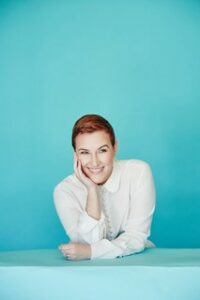
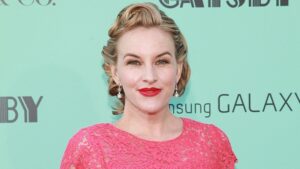
image credit: Sally Flegg Getty Images
You often speak of the diverse cultures you were surrounded by when you were growing up in Geraldton WA, how has this diversity influenced the person you are today?
Because of growing up in Geraldton, I believe I see Australia as an ancient country and a new country all at once. I recognise that we are a multitude of newcomers walking on the ancient land of the First Nations People, and that that is an incredible privilege – not one to ever be taken for granted. Because of the wonderfully diverse community I grew up within, I know we have so much to learn from one another and that cultural differences are a blessing, not a hindrance. More than anything, I have learned that we all have a multitude of stories within us. The stories I heard and witnessed in Geraldton through so many diverse people, bodies, accents, languages, minds encouraged me to become the storyteller I am today. They made me recognise the significance of my own story.
You are a renowned actor and playwright, how has your disability impacted on your career?
My career came from working my arse off. I worked really, really, really hard and still do. But as I get older, I realise that work has also been a kind of escape from my chronic pain. When I perform, I step into another character’s existence. When I write, I disappear for hours into another world. I’m not as conscious of my pain when I’m working. It’s still there, of course, but I’m distracted from it.
Did you feel comfortable to disclose your disability to others when you first entered the Arts space?
I spent many years trying to hide my disability as a performer. Not because I was ashamed of it at all, but because I thought if an audience saw any signs of it, it might distract them from the character I was employed to play. I also didn’t want to let on that I was in pretty consistent pain – I was afraid people might not hire me. I would instead excuse myself to go to the bathroom and get through my pain flare, hidden away and alone. I don’t believe or do any of this anymore. Ironically, I couldn’t keep up the pretense! Disabled people are everywhere. They make up 20% of the population, in all kinds of ways. They deserve to be represented on a stage or onscreen as much as anyone. And I’m bloody proud of my body – it has survived and adapted in its own unique way and I’m going to honour that by being truthful about it.
Kate in EVERY BRILLIANT THING. Production picture by Brett Boardman
Are there any significant incidents or experiences that you can share where disability has meant a difference to the way you have been accepted or treated in the course of undertaking your work?
When I played Richard III who also had a spinal disability, I decided to reveal my own spine onstage for the first time ever. I literally undressed and exposed my back to the audience. My real back – not the one I had been hiding through a series of tricks/costumes/lighting throughout my career. And it was so liberating. I didn’t have to pretend anymore – onstage or off. I found a whole new community that I didn’t realise I had the right to join. And in a way, I got to say, “I’ve been hiding here in plain sight all along. So there should be no excuse for not hiring disabled workers. We still get the job done.” My disability is part of who I am, and so many others. It is actually inauthentic to try to hide it, so I don’t.
Image credit: Prudence Upton
My disability is part of who I am, and so many others. It is actually inauthentic to try to hide it, so I don’t.
Did you ever consider other career options?
Nope. Not once.
How do you feel about disability representation (or lack of authentic representation) in the arts, particularly, theatre, film, and television characterisations?
We are slowly getting better at representation but we still have a hell of a long way to go. Our stages, pages, screens and workplaces are still trapped in a very white-skinned, blonde-haired, size-6, muscular, hetero-normative, Anglo-accented, able-bodied world. Which is in absolutely no way authentic – the real world is so much more interesting than that. Content makers and networks need to understand that the moment you make the effort to put someone in a story that is authentic to the world around us, then they not only open the narrative up to far more possibilities, but also open the industry up to so many more audiences and artists.
Is this something that is important to you?
Because culture should never be exclusive. Everyone should be included in the process of sharing stories. When someone with a disability in an audience sees someone with a disability onscreen or onstage, they are invited into the story instead of being locked out. They are included in the cultural conversation. They are told, “You are seen. Your story matters.” That is an incredibly important message, and one that is sadly lacking in all art forms. And it doesn’t mean that a storyline has to do with “being disabled”, although that’s perfectly ok too! Disabled people can still have all the same storylines as an able-bodied person. We love, we hate, we cry, we can be funny, we can give you goosebumps, we can be villainous, we can be superheroes, we can bring whatever is needed to a story…and maybe even a little bit more.
(By the way, Australia has some utterly incredible disabled artists that are creating brilliant work both at home and internationally – Daniel Monks, Kiruna Stamell, Emily Dash, Chris Bunton, Bridie McKim, Carly Findlay, Ana Maria Belo, Emma J Hawkins, Jamila Main, just to name a few. There are so many more. I wish we would recognize and celebrate them as much as we do our “Aussie celebs”.)
image credit: Getty images image credit: Sally Flegg
Have you ever become involved in promoting awareness disability in the arts?
Every interview I do and every time I step onstage or onscreen, I hope I am promoting awareness. It’s incredibly important to me. I also work as a mentor and dramaturg to several emerging artists with disabilities who teach me as much as I teach them. And away from the arts, I am an ambassador for MiVAC (Mines, Victims and Clearance) which provides assistance to communities still affected by landmines and dioxin – the chemical which resulted in my own disability.
Many of your plays and adaptations have a distinctly personal element to them, and often delve into the complex truths around difficult topics of family, love, disability, mental health, grief and loss and triumph and joy. Can you share with us what drives you to put such personal honesty and truth into such a public arena?
Because there is nothing as culturally alive as theatre. It is – or it should be – a microcosm of the world. So I write what I think needs to be said and felt, not just on a personal level but on a universal level. And there is nothing more wonderful than a group of humans – often complete strangers – coming together to share a story – so that experience has to be relevant, worthwhile, entertaining and leave everyone a little bit different to when they entered.
You wrote the adaptation of Jasper Jones *(novel by Craig Silvey) for the stage. Did you feel a connection to the work because of its setting and its secrets?
Very much so. I felt a great affinity to Corrigan – the fictional town in Craig’s novel. All of its secrets and all of its hopes, all of its beauty and its beastliness, all of its downfalls and dreams and – more than anything – its diverse characters. Craig captured a particularly complexed truth about country towns that translated beautifully to stage.
My disability also makes me incredibly resilient. I’m determined, tough and don’t take things for granted when it comes to my job – I know how lucky I am to be doing what I’m doing but also how hard I worked to get there.
You have recently moved into television, and appear alongside other well-known actors, including Al Pacino in the series Hunters. What has the move to television production meant for you, and how does it feel to be playing a strong, bad ass female character in an international series?
I’ve been writing and acting for screen for over 20 years so it’s actually not that recent! But in a way, it does feel new because it meant moving my life to the US to shoot the series – something I certainly didn’t expect to be doing at this stage of my career. Working on Hunters was an absolute dream come true, and I don’t say that lightly. Not just because I’m a disabled woman playing such a kick-ass character as Sister Harriet – a potty-mouthed, Nazi-hunting nun – but because I was surrounded by the kind of diverse, all-inclusive team that I have always wanted to work amongst, through the producers at Monkeypaw. It was a really beautiful, warm, generous, inclusive workplace and I can’t wait to get back in the habit again soon, so to speak!
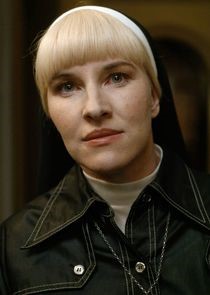
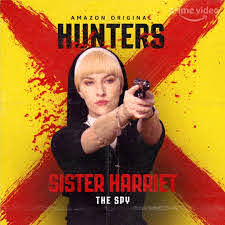
Image Credit: Christopher Saunders
Are you able to use your own disability experiences to your advantage when performing?
I use every experience I have as a performer, including my disability. My disability allows me to come at a role physically, psychologically and experientially in a multitude of ways that perhaps make my characterization a little different to the norm – and I like that! My disability also makes me incredibly resilient. I’m determined, tough and don’t take things for granted when it comes to my job – I know how lucky I am to be doing what I’m doing but also how hard I worked to get there. However, performing is also a team effort. A lot of work has gone into the character before I slip into their skin. As a result, I’m deeply curious about every mind, heart and body that has gone into the creation of a character and story. I love discussing what the writer and director might want/need from me. I research anything and everything to give me a sense of who my character may be. And once I have that knowledge, then I bring my own self into it – body, mind, heart, gut, instinct – and the character starts to take human form. In my case, they also happen to have a disability.
Knowing what you know now, what advice would you give your 18-year-old self?
Surround yourself with people who make you feel good about yourself.
Best advice that you would like to share with other women with disabilities?
Go get em.

